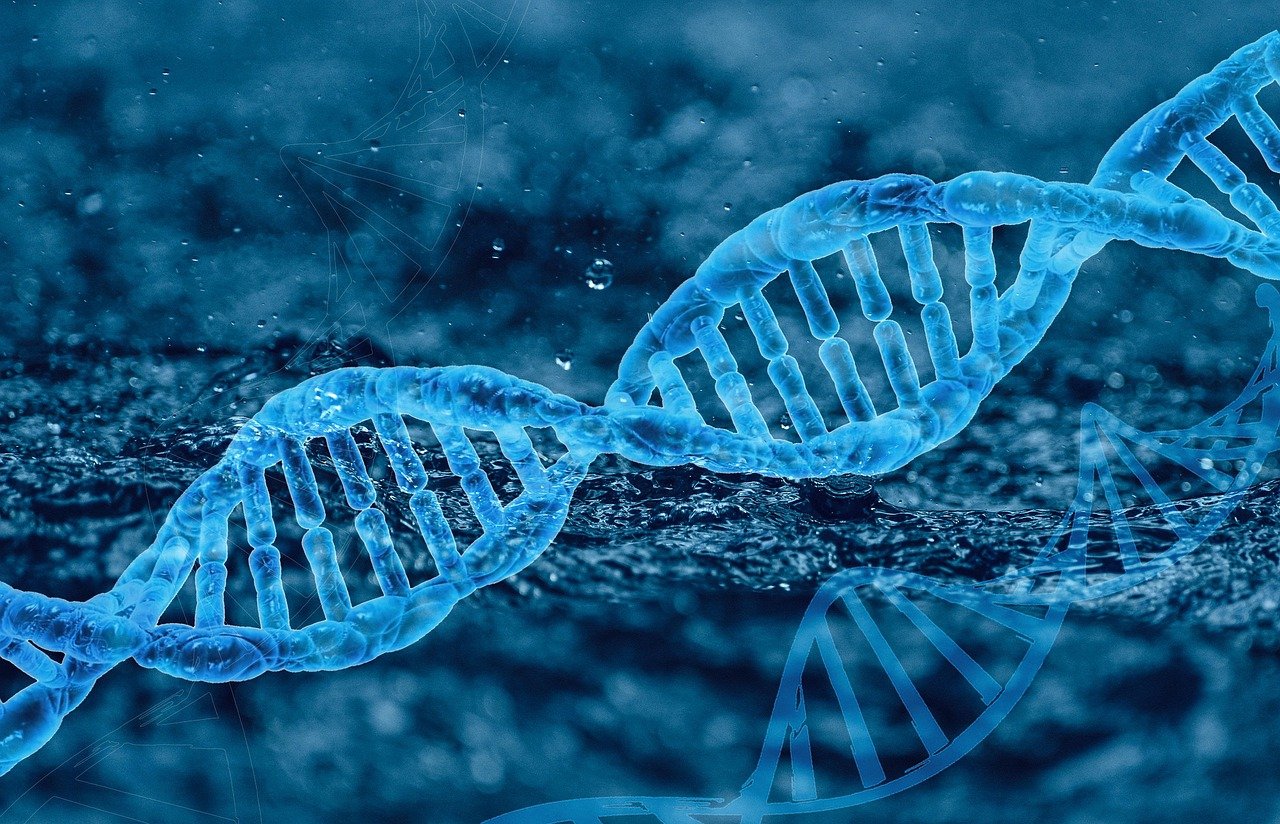12.08.2024
Genetics and addiction

Addiction is considered an extreme form of substance use disorder (SUD), a complex disorder which develops out of a multitude of biological and external factors, as well as their certain intertwinement.
You can find mor more information about the misuse of psychoactive substances and substance abuse disorder here: https://helpmedix.com/en/news/257-the-misuse-of-psychoactive-substances
Most people are exposed to psychoactive substances, be it through social pressure, culturally and legally acceptable use or the use of medicaments. It is clear that these substances can lead to addiction and other serious health problems if they are misused. Still, depending on a variety of factors, people develop substance abuse disorders in different manners. The exposure to a substance that would cause addictive patterns in some won’t necessarily do so in others.
What factors influence if someone will develop a substance use disorder and addiction?
The factors are many and their overlapping is complex and difficult to measure, especially depending on the specific situation. Research can help us better understand these factors and develop new ways to treat this disorder more effectively.
Factors that increase the risk of developing substance use disorder can be:
- Intrinsic (internal): genetics, sex, age, age of first usage, already existing substance use disorder, other mental disorders.
- Extrinsic (external): availability, peer pressure, difficulties in childhood, parenting style, socioeconomic status.
- Dependent on the substance: psychoactive characteristics, pharmacokinetics, way of consuming.
The influence and effect of these factors depends on different life periods and phases of development of the disorder. For example, peer pressure and familial situations are most important for initial substance use, while genetic factors and psychopathology play a more subtle role in developing problematic patterns of use.
Addiction is considered an extreme form of substance use disorder because at the time of diagnosis potentially irreversible neuroadaptive changes have already occurred. These changes were preventable in the earlier phases of the disorder, they act on the functioning of nerve cells and lead to substance tolerance, long – term need and longing for the substance and persisting feelings of discomfort which lead to relapse even after abstinence has been established.
Inherited factors:
Scientists are managing to find genetic data which speak to the heritability of substance use disorders, depending on the substance in question. This growing pool of data about genes and their combinations can help develop new specific ways to prevent and treat this disorder. Findings continue to confirm the important role of dopamine systems (reward systems) in addiction, the combination of genes specific for SUD is also connected to the regulation of dopamine signals.
Understanding the influence of inherited genetic components on the vulnerability of developing SUDs is complex, no single disorder is clearly influenced by one single gene but by complicated combinations and interactions of genes and alleles.
Understanding the relationship between genes and surroundings is also complicated, what has more influence?
Twin studies have shown that monozygotic twins which have the same genetic structure can develop disorders such as SUDs because of surrounding factors.
An important role in the interaction of genetic material and surrounding factors is played by epigenetics. Epigenetics is a biological mechanism which allows surrounding, external, factors to influence the expression of genes without altering the structure of the DNA, it allows “activation” of genetic potentials depending on external influence.
Studies with adopted children show a higher risk of developing SUDs with children whose parents suffered from the same disorders, even though the children never met them.
Research suggests that genetics are responsible for 40 – 60% of risk concerning this disorder.
It is clear that external factors play a large role, because this disorder has a high heritability it isn’t uncommon to find addiction in the close family of the child. Familial influence is extremely important in early age for the development of this disorder, especially combined with genetic predispositions it can seriously increase risk of developing SUDs.
Familial history can give us insight into genetic vulnerability, if you have close relatives who suffer from problems concerning substance use, it could be a clue that you need to be more careful about your and your families use.
Written by: Bachelor of Psychology, Aleksa Holcer
Ducci, F., & Goldman, D. (2012). The genetic basis of addictive disorders. Psychiatric Clinics of North America, 35(2), 495–519. https://doi.org/10.1016/j.psc.2012.03.010
Genes and addiction. (n.d.). https://learn.genetics.utah.edu/content/addiction/genes/
New NIH study reveals shared genetic markers underlying substance use disorders. (2023, March 22). National Institute of Mental Health (NIMH). https://www.nimh.nih.gov/news/science-news/2023/new-nih-study-reveals-shared-genetic-markers-underlying-substance-use-disorders
Roberts, A. J., & Koob, G. F. (1997). The Neurobiology of Addiction: An Overview. PubMed Central (PMC). https://www.ncbi.nlm.nih.gov/pmc/articles/PMC6826825/
*This text is intended for informational purposes only. If you experience any symptoms, it is recommended that you seek advice from your doctor or a qualified healthcare professional.*
*Image taken from the site: https://pixabay.com/illustrations/dna-genetics-molecule-biology-5695421/*
Your trusted partner in finding medical information. We offer access to reliable resources and make it simple for you to get in touch with qualified medical service providers. Our goal is to assist you in achieving optimal health through dependable information and ongoing support, whether it's advice, a physical examination, or expert consultation.